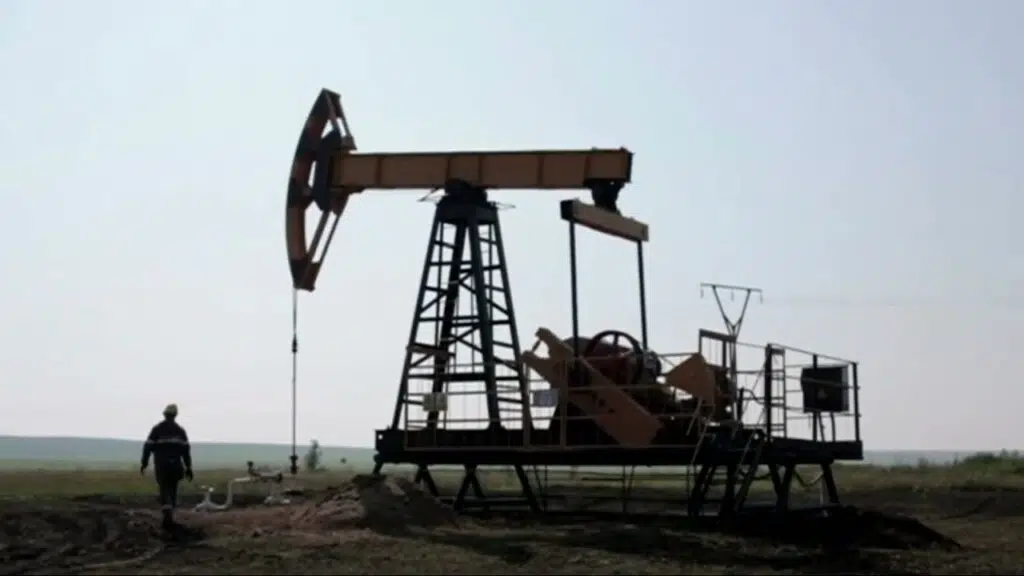
A Dynamic U.S. Oil Industry Will Curb Gargantuan Emissions From Russia and China
The war in Ukraine and the end of the pandemic have spotlighted a difficult, stubborn reality for zealous environmental activists in the U.S. and Europe: none of their efforts will mean anything unless sizable emission cuts are made in Russia and China.
The good news is there is a way out.
Instead of just continually bashing big oil and the technology companies that are helping them to cut emissions and operate more efficiently, environmentalists can form a working alliance with those who consistently lower emissions. The best environmental practices of U.S. oil companies should be replicated in Russia, China, the Middle East, and numerous other places that have dismal environmental records.
Russia’s already filthy environmental approach has gone completely haywire since the war began and shows no sign of improving. Even in the best of times, Russia just pays lip service to reducing emissions. The outlook is not bright.
As researchers with Columbia University’s Center on Global Energy Policy said in their January report, “Russia’s future participation in international pipeline and LNG consortia based on clear and transparent emission-verification protocols now looks doubtful, and best practices seem unlikely to be systematically adopted.”
The Columbia experts continued: “Assuming the current regime remains in place, the prospect of continued or even rising methane emissions in Russia, whether due to deteriorating conditions on the ground or an export shift toward more permissive markets, threatens to severely undermine global emission-abatement efforts.”
China, the world’s top polluter, responsible for 27 percent of emissions, also presents formidable problems.
According to the International Energy Agency, China’s energy sector accounts for approximately 90 percent of the country’s emissions. China has not signed the Global Methane Pledge, unveiled at the United Nations climate conference in November 2021. Methane is 80 times more potent than carbon dioxide in warming the atmosphere.
Meanwhile, Middle Eastern countries, Venezuela, and other oil producers often skirt U.S. environmental standards.
With the help of modern technology, especially data analytics, large U.S. oil companies have made substantial environmental progress.
On January 31, ExxonMobil said that it had eliminated routine flaring in the Permian Basin. Flaring refers to the burning of methane, and it is important for preventing unpredictable pressure variations which could lead to catastrophic explosions. Since 2016, ExxonMobil has reduced methane emissions by 40 percent.
One way to curtail flaring and emissions is Amazon Web Services’ Emissions Monitoring and Surveillance (EMS) solution. It provides a comprehensive view of emissions and operational data. This allows engineers and others to determine the optimal steps to protect safety and reduce emissions. Marathon Oil employed this to sharply reduce emissions in just eight weeks.
Other data-driven-technology applications include helping oil companies determine where drilling is likely to have the highest likelihood of success, identifying how oil companies can significantly reduce their own heavy energy demands, and auditing and documenting how they are meeting regulatory and climate pledge goals.
Tech companies also help public utilities to operate more efficiently to reduce power generation and emissions. Homeowners benefit from this technology as well. The U.S. is better when that same expertise is applied to oil production.
Making cars more fuel-efficient and creating cleaner burning fuels can also significantly reduce emissions from the oil and transportation sectors. Ongoing research should be encouraged here, particularly that which relies on the emerging field of data analytics.
The ability of U.S. companies to innovate and create cleaner, more powerful technology is stronger than ever. By encouraging that, the U.S. oil industry will have dramatically lower emissions, while setting operating standards that the rest of the world’s oil producers will be held accountable to meet.
This article was originally published by RealClearEnergy and made available via RealClearWire.



